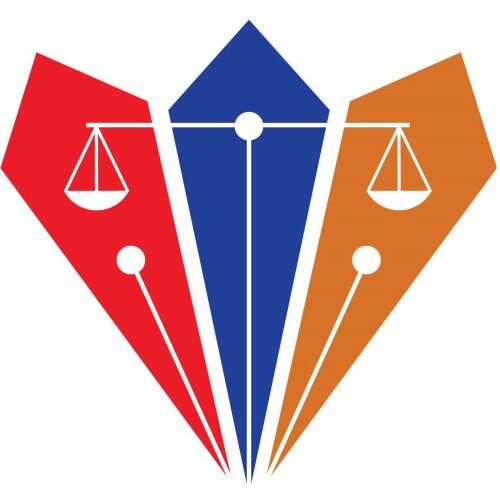Best Bankruptcy & Debt Lawyers in Dar es Salaam
Share your needs with us, get contacted by law firms.
Free. Takes 2 min.
List of the best lawyers in Dar es Salaam, Tanzania
About Bankruptcy & Debt Law in Dar es Salaam, Tanzania
Bankruptcy & Debt Law in Dar es Salaam, Tanzania deals with the legal framework surrounding financial distress, insolvency, and debt recovery. It encompasses regulations and procedures that govern individuals and businesses facing overwhelming financial obligations. The objective is to provide a fair and orderly process for debtors and creditors to resolve outstanding debts.
Why You May Need a Lawyer
There are several situations in which you may need a lawyer specializing in Bankruptcy & Debt Law:
- If you are struggling with unmanageable debts and need advice on the best course of action.
- If you are considering filing for bankruptcy and require assistance with the complex legal procedures involved.
- If you have received a notice of foreclosure on your property due to defaulted mortgage payments.
- If you are facing legal action from creditors or debt collection agencies.
- If you need guidance on negotiating debt settlements or establishing repayment plans.
Local Laws Overview
In Dar es Salaam, Tanzania, the following key aspects of Bankruptcy & Debt Law are particularly relevant:
- Bankruptcy Act: The Bankruptcy Act provides the legal framework for personal and corporate bankruptcy, debt relief, and rehabilitation. It outlines the processes for filing bankruptcy petitions, appointing trustees, and distributing assets among creditors.
- Contract Act: The Contract Act governs the enforceability of agreements and contracts related to debt obligations. It establishes the rights and obligations of debtors and creditors.
- Debt Collection Act: The Debt Collection Act regulates the practices of debt collection agencies and protects debtors from harassment and unfair treatment. It defines the permissible actions that debt collectors can take to recover debts.
Frequently Asked Questions
1. Can bankruptcy eliminate all my debts?
No, not all debts can be eliminated through bankruptcy. Bankruptcy can discharge certain types of debts, but exceptions exist, such as student loans, child support, and some tax obligations. It is essential to consult with a lawyer to determine which debts can be discharged in your specific case.
2. Will bankruptcy permanently ruin my credit?
Bankruptcy will have a significant impact on your credit score and remain on your credit report for a specified period. However, with time and responsible financial management, you can rebuild your credit. A lawyer can provide guidance on how to start the rebuilding process.
3. Can I keep any of my assets if I file for bankruptcy?
In bankruptcy cases, individuals can often retain certain assets such as necessary household items, clothing, and tools of their trade. The specific exemptions vary depending on the type of bankruptcy and the laws of Dar es Salaam, Tanzania. Consult with a lawyer to understand which assets may be protected in your situation.
4. How long does the bankruptcy process typically last?
The duration of the bankruptcy process depends on various factors, including the type of bankruptcy filed, the complexity of the case, and the court's workload. Generally, bankruptcy cases may be resolved within several months to a few years.
5. Can I run a business after filing for bankruptcy?
Yes, it is still possible to run a business after filing for bankruptcy. However, the specifics depend on the type of bankruptcy filed and the nature of the business. It is essential to seek legal advice to understand the limitations and requirements associated with continuing business operations.
Additional Resources
For further information and assistance regarding Bankruptcy & Debt Law in Dar es Salaam, Tanzania, consider the following resources:
- National Board of Accountants and Auditors (NBAA): The NBAA offers guidance on financial management, including debt relief, bankruptcy, and insolvency matters.
- Tanzania Revenue Authority (TRA): The TRA provides information on tax-related aspects of bankruptcy and debt recovery.
- Legal Aid Clinic: Contact a local legal aid clinic to inquire about free or low-cost legal services available for individuals facing bankruptcy and debt issues.
Next Steps
If you require legal assistance in Bankruptcy & Debt Law, follow these steps:
- Gather relevant financial documents and records such as loan agreements, contracts, and outstanding debt statements.
- Research and shortlist reputable Bankruptcy & Debt Lawyers in Dar es Salaam, Tanzania.
- Schedule consultations with potential lawyers to discuss your situation and gather legal advice.
- Choose the lawyer who best meets your needs and proceed with the necessary legal actions or procedures.
- Maintain open communication with your lawyer and provide any requested information promptly.
Lawzana helps you find the best lawyers and law firms in Dar es Salaam through a curated and pre-screened list of qualified legal professionals. Our platform offers rankings and detailed profiles of attorneys and law firms, allowing you to compare based on practice areas, including Bankruptcy & Debt, experience, and client feedback.
Each profile includes a description of the firm's areas of practice, client reviews, team members and partners, year of establishment, spoken languages, office locations, contact information, social media presence, and any published articles or resources. Most firms on our platform speak English and are experienced in both local and international legal matters.
Get a quote from top-rated law firms in Dar es Salaam, Tanzania — quickly, securely, and without unnecessary hassle.
Disclaimer:
The information provided on this page is for general informational purposes only and does not constitute legal advice. While we strive to ensure the accuracy and relevance of the content, legal information may change over time, and interpretations of the law can vary. You should always consult with a qualified legal professional for advice specific to your situation.
We disclaim all liability for actions taken or not taken based on the content of this page. If you believe any information is incorrect or outdated, please contact us, and we will review and update it where appropriate.
Browse bankruptcy & debt law firms by service in Dar es Salaam, Tanzania
Dar es Salaam, Tanzania Attorneys in related practice areas.














